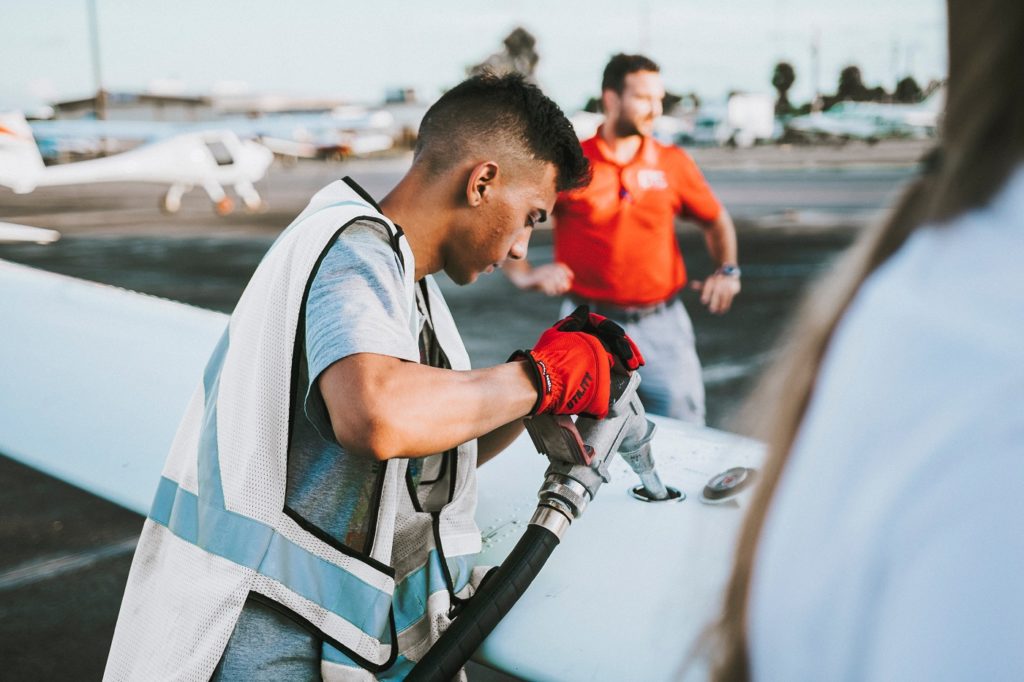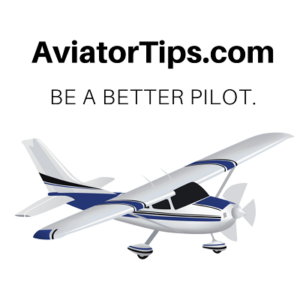Learning To Fly When You’re Broke
Learning to fly can be a challenge. There’s so much to learn that it can seem overwhelming. It’s also very expensive, which can make it seem even more so. When you’re broke, it seems like nothing more than an unattainable dream.
While there’s no magic bullet (at least not that I know of), there are some things you can do to get a little closer to that dream of becoming a pilot. Here are 11 tips for learning to fly when you’re broke.
1) Skip the Fancy Flight School
Many of us are attracted to the big, professional flight schools that churn out future airline pilots by the dozen. There are many good reasons to attend this type of flight school. With that said, it’s not a particularly practical way of learning to fly when you’re broke.
Professional flight schools offer a lot of advantages. They have streamlined programs, a professional atmosphere, a fleet of well-maintained aircraft, and all the resources you need at your fingertips. They also have prestige and connections with airlines if you’re learning to fly as a career choice. (In which case, you may also want to read Is Now A Good Time To Become A Pilot?)
However, all of these benefits have a cost.
In this case, I mean that literally. Learning to fly will cost you roughly $9,000-$12,000 if you’re cost-conscious. At a fancy flight school, it will cost you anywhere from $15,000-$20,000 to get your Private Pilot Certificate.
Try sticking with a smaller flight school, or even a well-regarded independent instructor. The quality of your instruction is what’s important, not the size or prestige of your training provider.
Remember to also check beyond your local airport. You may find a school with lower instruction rates by being willing to drive a little further.
2) Self-Study
There’s a lot more involved in learning to fly than jumping in a plane with an instructor. There’s also a lot of bookwork and studying required. For much of this, you’ll be paying an instructor and/or a ground school, so make the most of it.
Learn as much as you can on your own, so you waste as little time as possible when you’re paying for instruction. It’s amazing what you can learn on YouTube for free. You can buy a Student Pilot Flight Manual on Amazon for under $30 and read it cover to cover. You can also read the FAA’s Aeronautical Information Manual for free on the FAA website.
The more you study and educate yourself in advance, the faster your training will go. This can potentially save you hundreds or even thousands over the course of learning to fly.
If you’re wondering how long it takes to learn to fly, check out this article.
3) Budget Yourself and Save Money
If you don’t already have a personal budget, create one. Maximize your earnings and minimize your expenses. Try to eliminate any expense you don’t need and instead, put that money into a savings account, not to be touched.
If you can wait, don’t start your paid training until you save up enough to do it all at once. If you can only afford to train a few hours per month, you’ll spend more time each lesson reviewing the last. As a result, your training will take longer and cost you more. Faster training, less review, lower cost.
4) Take Advantage of Block Rates
Most flight schools will let you pay as you go, but they’ll also offer “block rates”. These are discounted rates for paying a larger deposit at a time. Typically, they’ll discount your aircraft rental anywhere from $5 to $15 per hour if you deposit $1,000 in your account at a time.
This is a nice compromise between paying in advance (which you really don’t want to do) and paying as you go.
5) Get a Second Job
Finding a second job can help, especially if you’re able to dedicate the income from that job to your flight training. If possible, try to find a job in aviation. Go to your local airport and see if you can get a job at one of the flight schools or flying clubs.
It doesn’t have to be anything sexy. All flight schools need someone to wash, clean out, fuel, and move the planes about the hangar. Someone needs to sweep the floors, file the paperwork, and clean the bathrooms. It’s not glamorous, but it’s a means to an end.
Not only will you earn extra money towards learning to fly, but you’ll learn about aviation while you’re working. Many flight schools will also offer discounts to employees.

6) Barter for Flight Hours
If you can’t a flight school that’s looking to hire, try asking if they’re willing to barter for flight hours. Everyone has a skill they can offer in exchange. Perhaps you’re an accounting wizard and the school needs help with its books. Perhaps you build websites or manage social media. There are skills you can trade for training.
You can try this at flight schools, flying clubs, and even independent instructors.
7) Join the Civil Air Patrol
While the Civil Air Patrol does not train pilots, you don’t have to be a pilot to join. There are many roles you can fill with CAP that will help you gain experience and network with pilots and CFIs. Many of these CFIs may offer you discounts or possibly even some free training.
8) Scholarships
There are many organizations that offer scholarships for learning to fly. Apply to as many as possible. You may be surprised. AOPA has a great list of scholarships that you can check out here.
9) Sponsorship
Do you have a rich uncle? Or other family or friends that would pay your way to your certificate? If so, perhaps you can use this as an option. Of course, there has to be something in it for your benefactor as well, so make sure you come up with a persuasive proposal first. Otherwise, holiday dinners may be awkward.
10) Buy a Plane
Yes, I know that sounds a wee-bit counter-intuitive. If your goal is learning to fly when you’re broke, you probably can’t afford to buy a plane. However, the idea isn’t completely crazy.
Most aircraft hold their value well if you maintain them. You can purchase an aircraft for a short time and do your flight training in it. Once you earn your certificate, you can sell it and get your money out of it. This can easily save you thousands of dollars in aircraft rental fees.
You can even look at buying a plane that needs a little work, put in some sweat equity and sell it for a profit. However, be aware that doing so can be a risky strategy. Here’s a good article that discusses this option in more detail.
11) Get a Loan
Finally, you can always borrow money to get in the air. Most flight schools offer some form of financing. Personally, I wouldn’t recommend it, but it’s an option.
Chances are, if you’re too broke to afford the cost of learning to fly, then you probably can’t afford to make loan payments either. If you are seriously considering this option, then please make sure you have a very compelling reason, as well as a solid plan to pay the loan back.
Read also: How Much Does It Cost To Learn To Fly A Plane?
There’s No Magic Bullet
So, there you have it. 11 tips for learning to fly when you’re broke. I know that there’s no magic bullet, but all good things take time and effort.
If you’re willing to sacrifice and be persistent, you’ll find a way to get into the sky.
Recent Posts
Learn what a SIGMET is in aviation, how it differs from AIRMETs, and why Significant Meteorological Information is critical for safe flight planning and operations.
Squawk 7700: What Aviation's Emergency Code Means for Pilots
Learn what Squawk 7700 means in aviation, how pilots use this emergency transponder code, and how air traffic control responds to aircraft emergencies worldwide.


